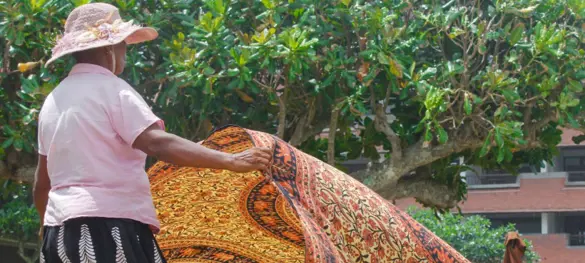Resilience and rights: Exploring economic, social, and cultural strategies in post-war Sri Lanka

Addressing economic, social and cultural challenges has become essential to ensuring Sri Lanka’s long-term recovery. Image: MSM - stock.adobe.com
Sri Lanka is renowned for its rich cultural heritage, diverse ecosystems, and centuries-old traditions. The island nation in South Asia has also faced decades of conflict, leaving lasting impacts on its people and communities. As the country rebuilds, addressing the economic, social, and cultural challenges of war-affected communities has become essential to ensuring long-term recovery and equity.
The road to recovery often extends beyond physical reconstruction. For communities grappling with the enduring impacts of war, the restoration of economic, social, and cultural rights (ESCR) represents a critical yet often overlooked aspect of rebuilding lives and fostering equity.
This is the focus of my research conducted over several years in post-war Sri Lanka, particularly among communities impacted by the conflict, exploring the challenges these groups faced in realising ESCR while highlighting the collective coping mechanisms that have emerged in response.
Economic, social, and cultural rights encompass basic entitlements, such as access to education, health care, work rights, and cultural participation. These rights are foundational for ensuring equality and dignity in society. In conflict-affected settings like Sri Lanka, the disruption of these rights disproportionately impacts minority and vulnerable groups, leaving them at a heightened risk of marginalisation.
Many Sri Lankans encountered significant obstacles in securing ESCR due to structural inequities, socio-political tensions, and economic instability. My research aimed to uncover the forces enabling and hindering these rights and document how communities adapted to these challenges.
In post-war contexts, economic hardships often intertwine with social exclusion and cultural suppression, creating a web of challenges that impede progress. Many individuals struggled with limited access to employment opportunities, unequal resource distribution, and significant obstacles to education and healthcare.
These difficulties were further exacerbated by deep-rooted societal stigmas, inefficiencies in institutional systems, and the absence of inclusive governance structures.
For example, restricted mobility due to security concerns affected livelihoods and hindered access to essential services like education and healthcare. Cultural traditions, essential for maintaining identity and strengthening social bonds, were constrained in environments often characterised by mistrust and harmful stereotypes.
Community-based strategies for resilience
Despite these obstacles, communities demonstrated remarkable resilience through collective and community-driven strategies to secure their rights. Drawing from qualitative data collected through interviews and observations, my research identifies these strategies as critical mechanisms for navigating a challenging post-war landscape.
Economic cooperation and informal community networks played a significant role in providing financial support. Initiatives such as pooled savings, microcredit schemes, and cooperative ventures enabled individuals to rebuild livelihoods and reduce dependency.
Networks of mutual aid and community-based organisations emerged as vital platforms for advocacy and resource mobilisation. These structures enabled communities to collectively voice their concerns and work towards equitable resource distribution. Through grassroots efforts, communities revived traditional practices and rituals, fostering a sense of identity and unity. These cultural activities served as both a coping mechanism and a form of advocacy, asserting their rights to cultural expression.
The research underscores the importance of recognising and leveraging community-based strategies in post-conflict recovery. Securing ESCR in post-war settings is a collective endeavour that requires coordinated efforts from governments, international organisations, and civil society. By addressing economic inequities, social injustices, and cultural barriers, these stakeholders can contribute to a more equitable and inclusive society.
The resilience and resourcefulness of communities are powerful tools for navigating adversity. Recognising and amplifying these strengths is key to fostering recovery that respects human dignity and lays the foundation for lasting peace.
By sharing these insights, I hope to contribute to a broader understanding of the challenges and opportunities inherent in post-conflict recovery. Together, we can work toward creating systems and structures that uphold economic, social, and cultural rights, ensuring a more just and equitable future for all.
Dr Dinesha R. Fernando is an Adjunct Research Fellow at Federation’s Institute of Education, Arts and Community. His thesis and upcoming book explore the challenges communities face in achieving long-term recovery and equity, with a focus on securing economic, social, and cultural rights (ESCR) in post-conflict settings.
